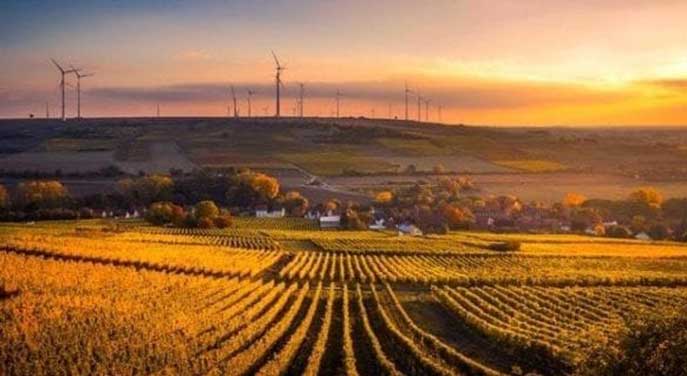Should we be looking to the past to help boost the future of the province’s rural economy?
A hundred years ago, local co-operatives were a fairly common way of doing business in rural areas. Now the Alberta Centre for Sustainable Rural Communities is researching ways to make this old model work in a modern economy.
“It’s a ‘new-old’ way of thinking about community development,” said lead researcher Clark Banack, director of the centre at the University of Alberta’s Augustana Campus.
 Clark Banack |
 Patti Morris |
Agricultural co-operatives took root early in the last century, as farmers formed member-owned businesses to buy products or sell their grain at optimal prices. The movement resulted in organizations like the United Farmers of Alberta, which is still active, selling agricultural products and services.
Though local co-ops are few and far between today, Banack said the homegrown business model is still a natural fit for rural Alberta’s culture of self-reliance.
“Co-ops are a model built on that belief. Community members have to step up and do the work,” he said. “They know their community best, and what their capacities and needs are, so they are in the best position to generate some positive momentum.”
Reinvestment in local co-operatives could help attract and keep people living in rural Alberta, he added.
“If you get more co-ops in rural communities, you get more jobs, more services, more money staying in the community. And those benefits are going to translate into more people wanting to stay there to live.”
Factors eroding small communities over the last few decades include a gradual shift away from oil and gas production and towards a more urban-based job sector.
That decline takes high-paying jobs and reduces rural populations, tax bases and the level of community services residents expect. It leaves small-town commercial spaces underused or empty.
Rural stakeholders are voicing those concerns, said Patti Morris, executive director of the Alberta Real Estate Foundation, which is funding the research project.
If the research validates the potential of co-operatives, then rural communities and their governments will have a promising economic tool for dealing with those interrelated issues, she said.
“It could spur jobs and directly address the issue of depopulation, increase the variety of housing options and attract new investment. And that could stabilize the real estate market – and quality of life – in rural Alberta.”
Co-operatives are grounded in community well-being, Banack noted.
“They are motivated to turn a profit, but that desire is balanced with a broader social objective related to ensuring an essential service continues to be offered in the community, even if the endeavour is not hugely profitable.”
While a few Prairie co-operatives such as the United Farmers of Alberta and the Co-op are still thriving, cultural changes over the past 60 years saw many of their smaller cousins fall by the wayside, Banack said.
Eliminating the rural-urban divide, one internet connection at a time by Sylvain Charlebois
Many Canadians are fleeing cities only to realize how poorly serviced rural regions are in terms of internet access
Getting community buy-in for reinvestment is one of the challenges his research will help address.
“We have witnessed a general turning inward, away from the community, for a variety of reasons. The result is that many now assume it is solely the role of the provincial or municipal government, or the private sector, to accomplish certain community outcomes. That mindset is the opposite of what’s needed to make a co-operative work,” said Banack.
Banack and a small team of student researchers will also look at the success of rural co-operatives thriving in Europe and the United States, which operate around several initiatives including green energy, high-speed internet service and artisanal work.
“We want to know how they did it, what kind of supports were there to help them, and how we can replicate that success here in rural Alberta.”
When completed in 2023, the project will offer a conference and how-to guidance for municipal governments and residents interested in starting and maintaining co-operatives.
Banack hopes the idea of local co-operatives takes hold at the community level, as it did 100 years ago.
“It won’t happen overnight, but it would be great if this sparks the creation of a few co-ops in the short term. What researchers are finding in other parts of the world is that the more people learn about community-based co-ops, the more creative they’ll get in using the model to meet community needs, and these co-ops grow in clusters, because they tend to support each other.”
| By Bev Betkowski
Bev is a reporter with the University of Alberta’s Folio online magazine. The University of Alberta is a Troy Media Editorial Content Provider Partner.
The opinions expressed by our columnists and contributors are theirs alone and do not inherently or expressly reflect the views of our publication.
© Troy Media
Troy Media is an editorial content provider to media outlets and its own hosted community news outlets across Canada.


